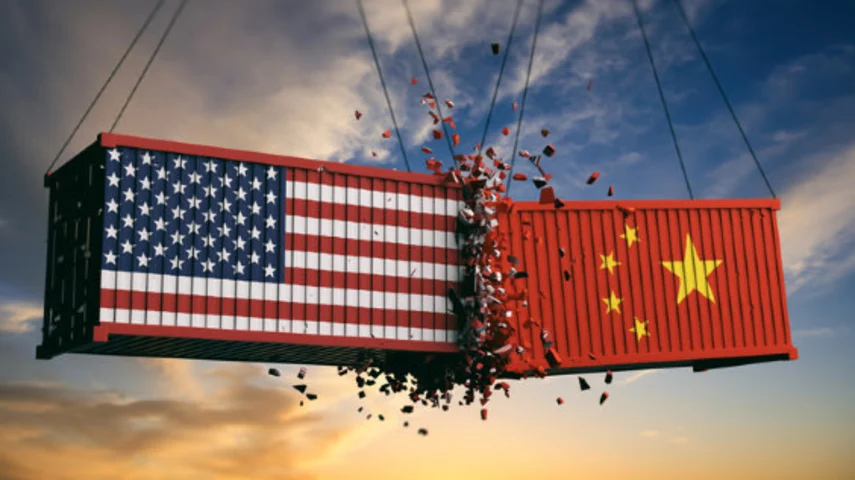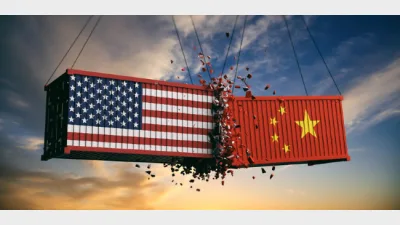Could China and US start a currency war?



China is a currency manipulator, but not how the Trump administration is claiming, according to market commentary from State Street Global Advisers.
After US President Donald Trump threatened further tariffs on China with 10 per cent on another $300 billion of Chinese imports, it was expected China would reply with retaliatory measures.
In the past the People’s Bank of China (PBOC) had been intervening directly and via capital controls to prevent the currency from weakening by buying large amounts of the yuan to keep it artificially high.
However, said they had not done it this time to engineer the price of their currency in their favour by not intervening.
Raf Choudhury, senior investment strategist at State Street Global Advisers, said the US could go to the International Monetary Fund (IMF), but they had previously sided with China over claims it was manipulating its currency.
“Whatever happens next, the likelihood is that [the yuan] will continue to weaken a bit further, and the probability of a full 25 per cent tariff on everything is much higher than before,” Choudhury said.
“The risk to the global growth outlook has increased and could lead to higher inflation and huge volatility in foreign exchange markets that investors should be prepared to weather.
“Potentially the US could start intervening directly although that might be the pot calling the kettle black.”
Recommended for you
Evidentia’s chief investment strategist Nathan Lim has announced his retirement after a 30-year career.
GQG Partners has marked its fifth consecutive month of outflows as its AI concerns lead to fund underperformance but overall funds under management increased to US$166.1 billion.
Apostle Funds Management is actively pursuing further partnerships in Asia and Europe but finding a suitable manager is a “needle in a haystack”.
Managed account provider Trellia Wealth Partners, formed from the merger between Betashares and InvestSense, has appointed its first managing partner.











